Forgot Your Password? Here’s How You Can Recover Your Android Lock Screen Pin
8 methods to help you get back inside.
In an era where digital privacy is paramount, smartphone screen locks have transitioned from an optional feature to an indispensable one, safeguarding our personal, professional, and financial data from prying eyes. However, the convenience of modern biometric identification methods—like fingerprint scanners and facial recognition—has subtly nudged traditional passwords to a secondary, often overlooked, layer of security.
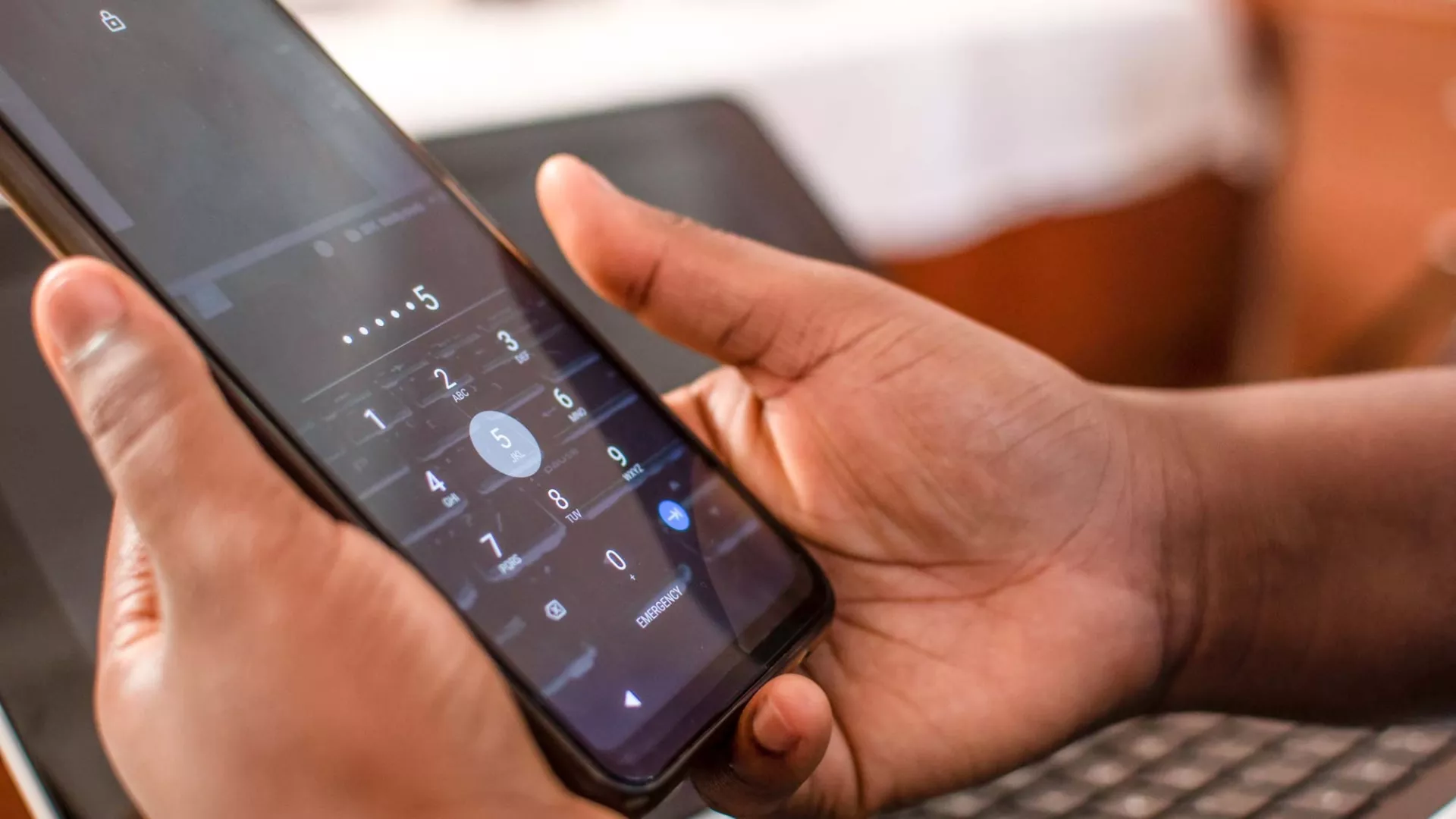
This shift has an unintended consequence: the heightened risk of forgetting our manually input passwords. It’s a familiar scenario—being locked out of your device due to a forgotten password and feeling as if you’ve lost the phone altogether.
But, fret not. Even if you find yourself in this situation, there are ways to regain access to your Android device. This guide will go over various methods you can employ to unlock your phone when the password slips your mind.
Table of Contents
How to Unlock without Losing Data
If you’re using a Samsung device, things will still be quite under control, and you’ll have a chance to recover your phone. However, the same cannot be said for other devices. More on this later.
1. Use the backup PIN.
This sentence is a bit of a long shot, but if you somehow set up a pattern or password lock on a device running Android 4.4 KitKat or earlier, it would prompt you to decide on a backup PIN. This PIN will be used in case you forget the original password or pattern. If you have set this up, follow this method to regain access to your locked Android.
- On the lock screen, enter the incorrect password or pattern five times.
- You will see an option to recall your backup PIN. Open this option and enter your backup PIN.
- To finish entering your PIN, press the “Done” button.
- To change the lock screen pattern, you will be taken to the Screen Unlock menu.
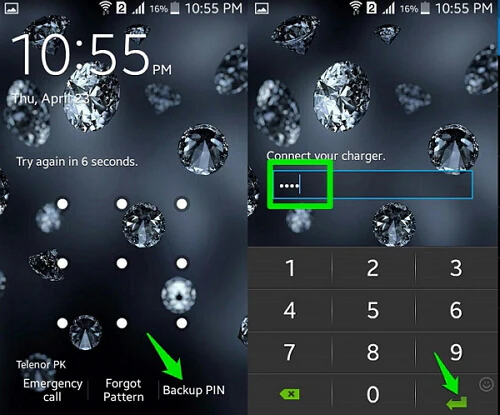
2. Use SmartThings Find.
If you are worried about forgetting your device’s screen lock code (e.g., PIN, password, or pattern), Samsung includes remote management capability on all of their phones in case you misplace yours. Previously, it was known as Find My Mobile, and now it has been updated to SmartThings Find.
You will need a wireless or cellular data connection, and you must be logged into your Samsung Account on your mobile device. Remember that this will not function if SmartThings Find or Find My Mobile has not been activated in advance.
The following are the procedures for resetting your phone’s passcode via Find My Mobile:
- Visit findmymobile.samsung.com from your computer.
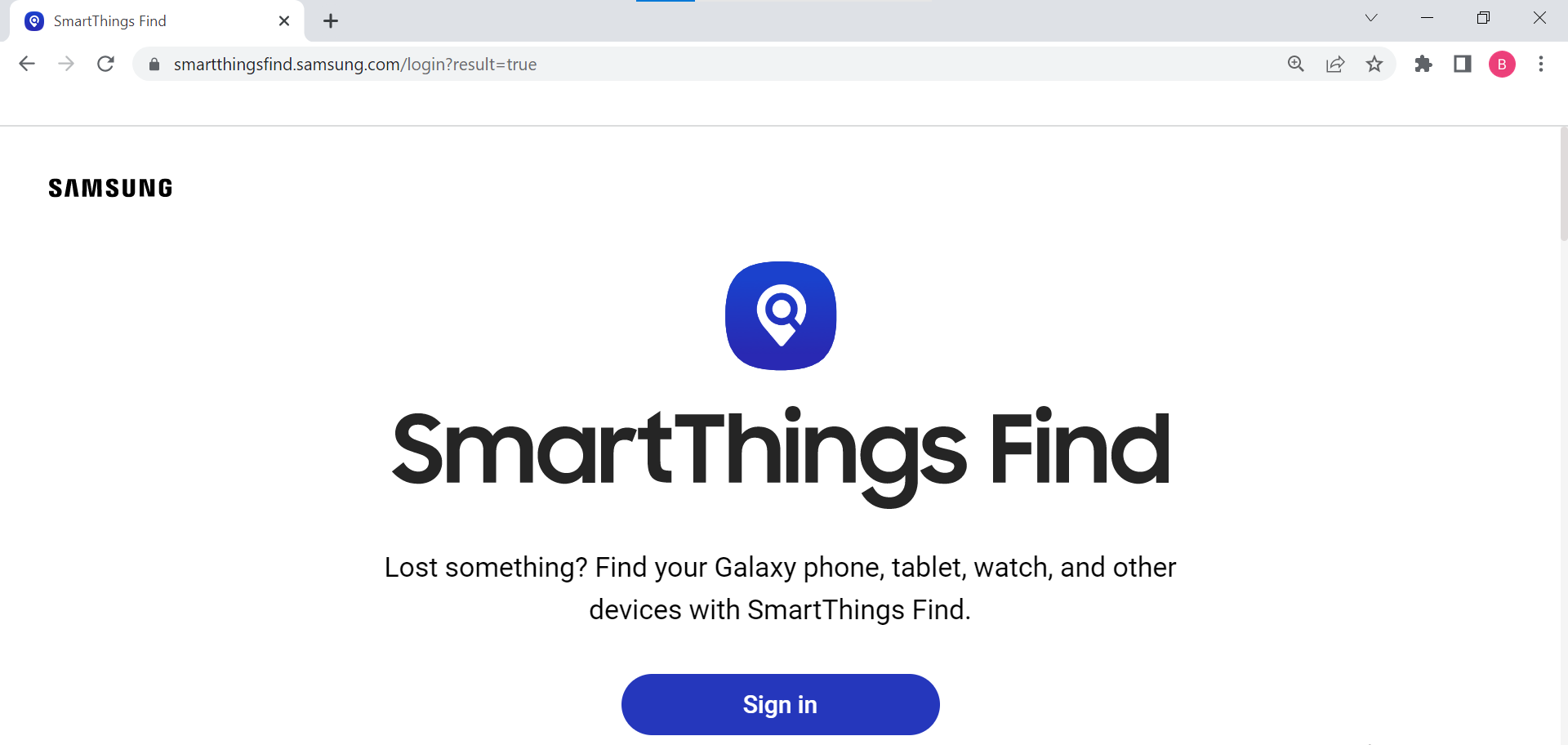
SmartThings Find Homepage - Log in to your Samsung account.
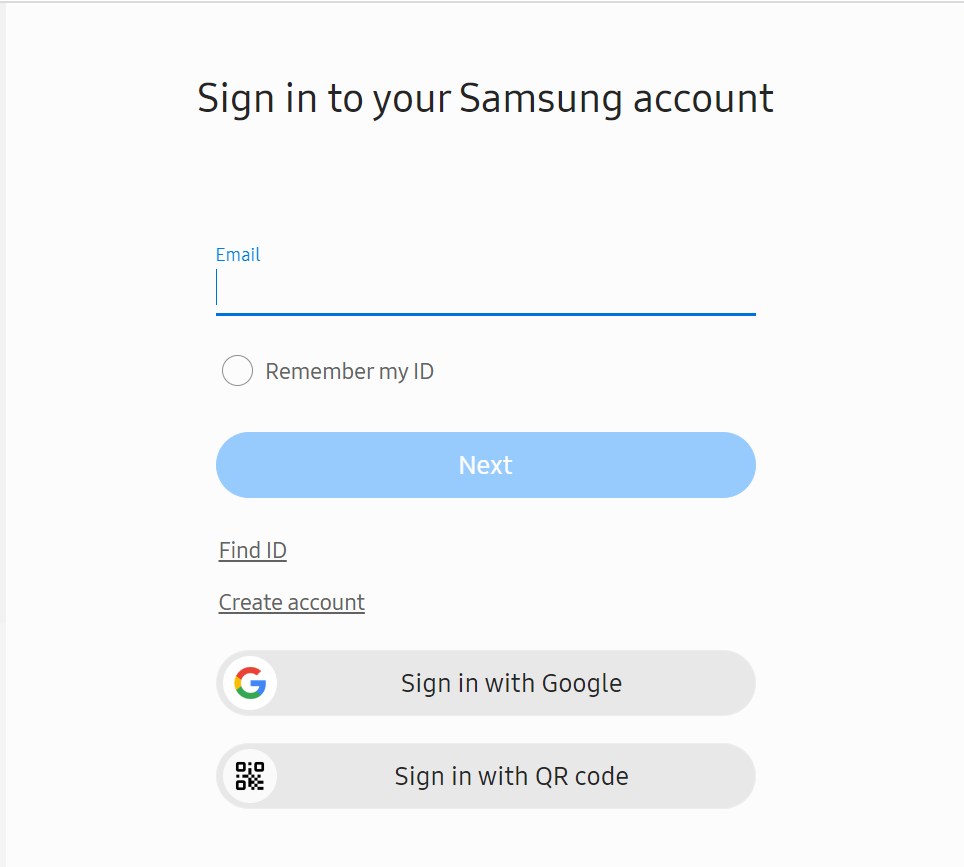
Sign in to your Samsung account - Following this, you will see various devices registered under your Samsung account in the left column.

Choose your device and select unlock - Choose “Unlock.” Next, you will be prompted to unlock your Samsung device. Click “Unlock” and enter your Samsung Account password to confirm the unlock.

Unlock Samsung via SmartThings Find
3. Use third-party applications.
There are different types of third-party applications that can be used to bypass the Android lock screen without losing your data. These applications attempt to download recovery packages and install them on your device in an attempt to remove the lock. Dr. Fone by Wondershare and TenorShare are two programs that you can use.
In this case, we will work with the example of TenorShare because it is quick and easy.
- Download the 4uKey for Android PC application from its website.
- Open the application, then connect your phone to the system using a USB cable, and follow the on-screen instructions.
- You will see an option to ‘Remove Screen Lock.’ Click it, and the process will begin.
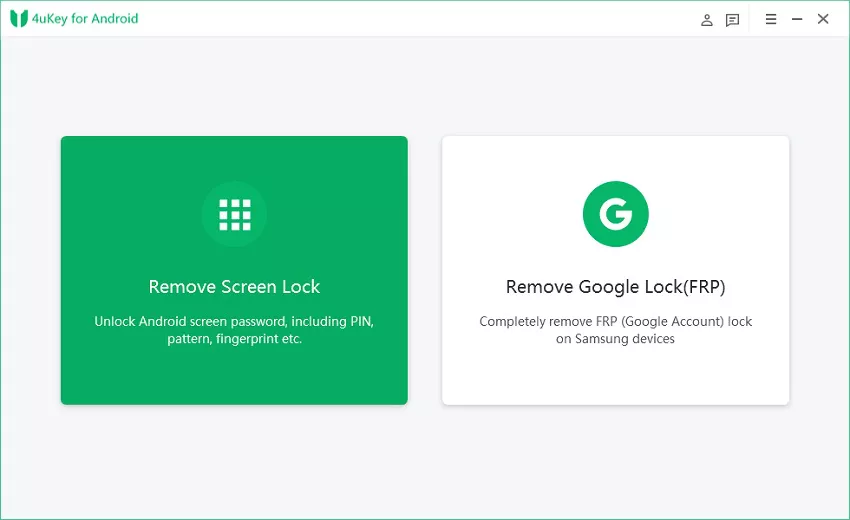
Removing Android screen lock with 4uKey for Android | TenorShare - After a few minutes, the Android device will be unlocked, and you will be able to use it again.
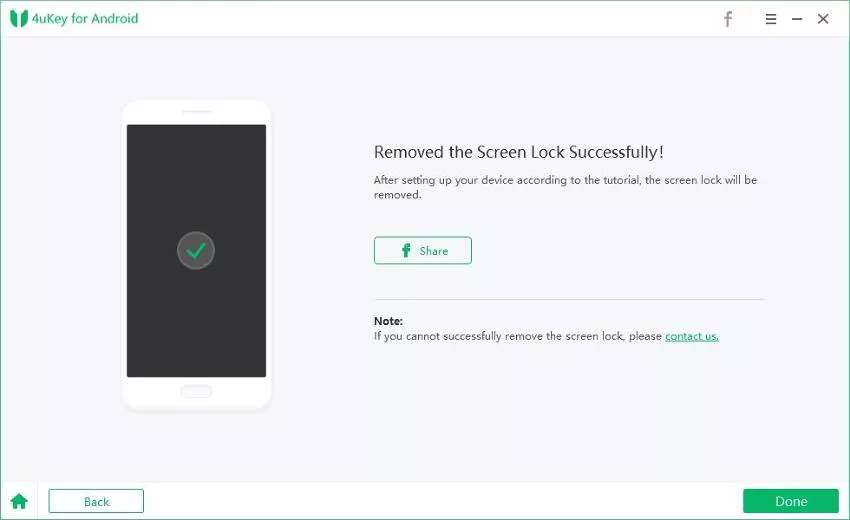
Bypassing Android lock screen successfully without losing data | TenorShare
4. Activate Smart Lock.
The Android Smart Lock feature allows you to disable the lock screen under specific circumstances. On most phones, you can find the option for Smart Lock under Settings > Security > Smart Lock, but on Samsung phones, you will find it under Settings > Lock Screen > Smart Lock. You need to have Smart Lock set up already; if you don’t, you won’t be able to use this method to unlock your device.
Your existing password must be entered before any changes can be made. Afterward, you will be presented with four alternatives to unlock your phone without entering a code:
1.On-body detection: When your phone detects that it is in your hands or pocket, it will remain unlocked. Activate this feature by going to Settings > Security > Smart Lock and turning on the button labeled “On-Body Detection.

2.Voice Match: Your phone will unlock with a voice match if it recognizes your usual voice. However, this feature is no longer available on smartphones running Android 8 Oreo or later. Voice Match still works on modern devices; it just doesn’t aid in unlocking your phone anymore.
3. Trusted Device: When paired with a trusted Bluetooth device, such as a vehicle or fitness tracker, your phone will remain unlocked. Simply pair your device when prompted, and your mobile will begin recognizing it as a trusted device.
In case your phone is locked and you cannot seem to remember the code, simply bring it close to a trusted device, and it will unlock. Keep in mind that for this method to work, the Bluetooth on your phone must be turned on.

4. Trusted Places: This feature allows you to use your phone’s location to unlock it when you are in a predetermined trusted location, such as your home or workplace. In these places, your phone will automatically remain unlocked.
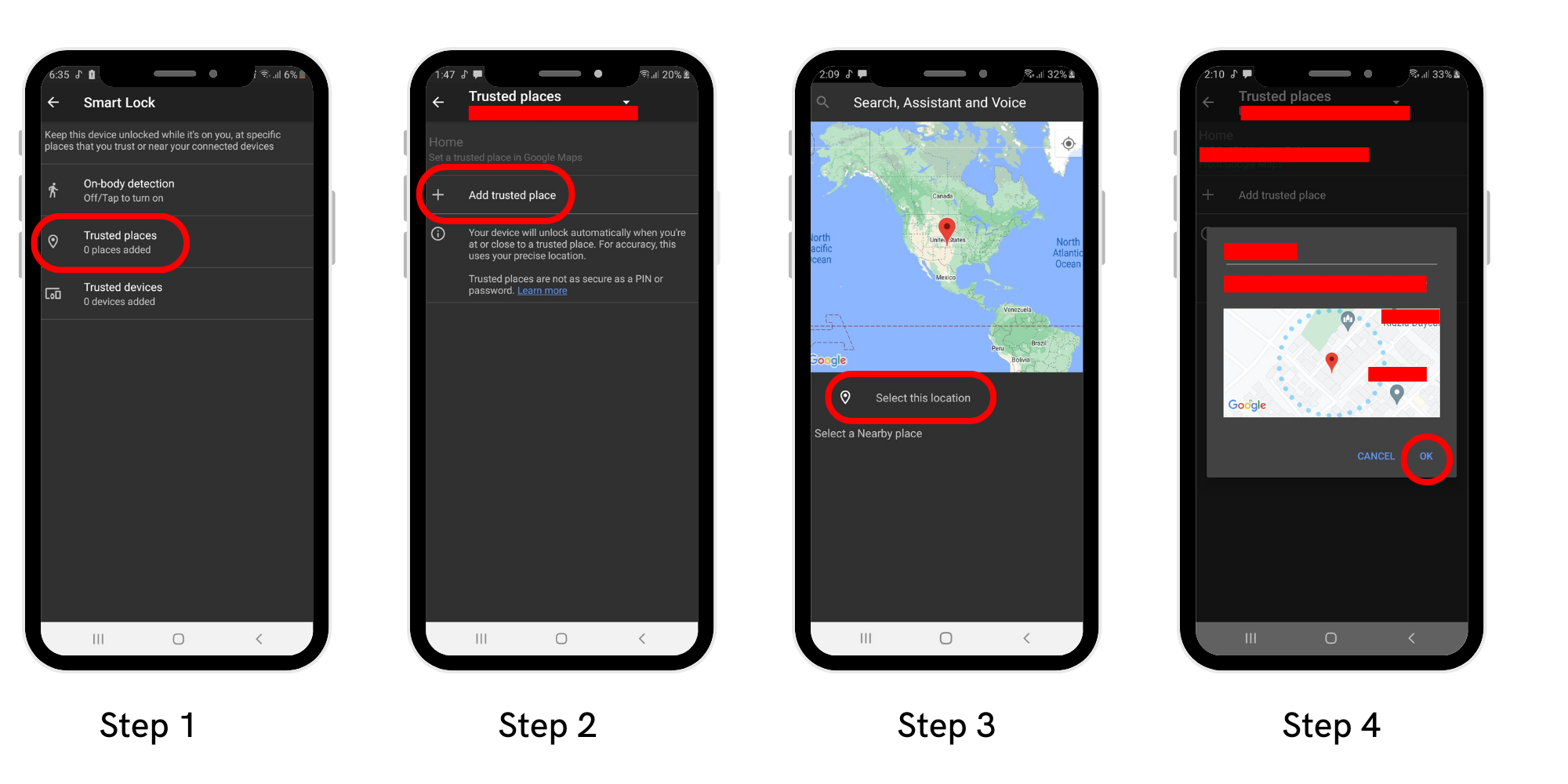
You can still access your phone if you have already set up one of these methods and then forgotten your password.
5. Use the “Forgot PIN” option.
You can also use your Google account to unlock your phone if you have Android 4.4 KitKat or an earlier version. Simply enter an incorrect password repeatedly until you see the ‘You have tried multiple times without success‘ message on your screen. The message will disappear after 30 seconds, at which point you will now have a new option next to emergency calls.
- Click the “Forgot Pattern?” button. A link will be sent to a Google sign-in screen.
- Enter your email address and password to sign in.
- You can now choose to clear your security pattern from the details sent to your Gmail account. You may change the lock screen pattern by selecting the Sign-in tab and then tapping Screen Unlock.
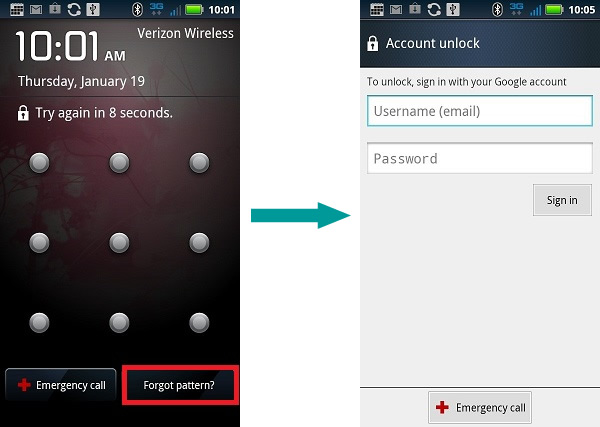
Unfortunately, Google no longer includes this choice in more recent Android releases.
Advanced Solutions for Bypassing Android Lock Screens.
None of the previous solutions will work if you have not already set up Smart Lock or do not have an old phone. There may be times when a hack or workaround is necessary.
1. Use ADB to delete the PIN file.
The Android device creates a key file to store sensitive information such as fingerprints, patterns, and other passwords. This is done to enable the phone to be unlocked instantly upon entering the correct password and to remain locked when an incorrect one is used.

The Android Debug Bridge (ADB) program allows you to transfer data between your computer and your mobile device. This can be used to remove the file responsible for the lock screen security on the phone. However, this strategy will be successful only if:
- Your phone is set up for USB debugging. You probably do not have access to the Developer Options menu since you have never explored it.
- Your phone is now connected to your computer through ADB, which you have enabled.
- Your mobile device lacks encryption. Google mandates that all Android phones be encrypted starting with Android 6.0 Marshmallow. Therefore, this fix is not for the latest smartphones.
If you have the ADB and FastBoot utilities installed on your PC, you can use the ADB Shell instructions to delete the PIN file of your Android device. In case you don’t have ADB, follow our guide on how to install it on a Windows PC. XDA Developers have a comprehensive guide for other platforms as well.
- Once installed, enable USB Debugging on your phone. Make sure you have access to Developer Options first. If you don’t have it already, follow our guide to enable Developer Options in Android.
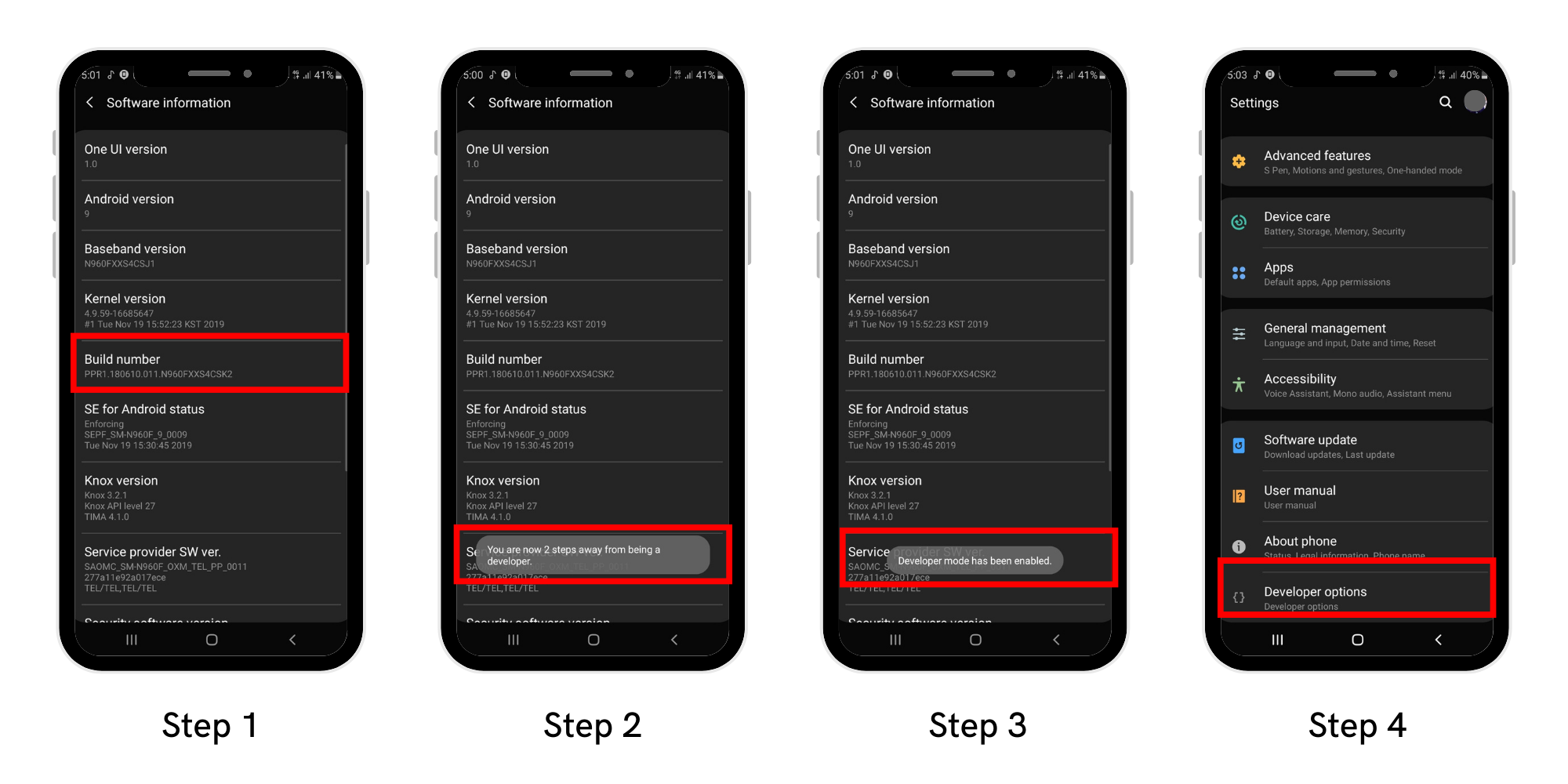 Enabling Developer Options in Android
Enabling Developer Options in Android - Now, return to the Settings section, and at the bottom, you will see ‘Developer Options‘. You might need to enable it first. From here, go to ‘USB Debugging‘ and allow it.
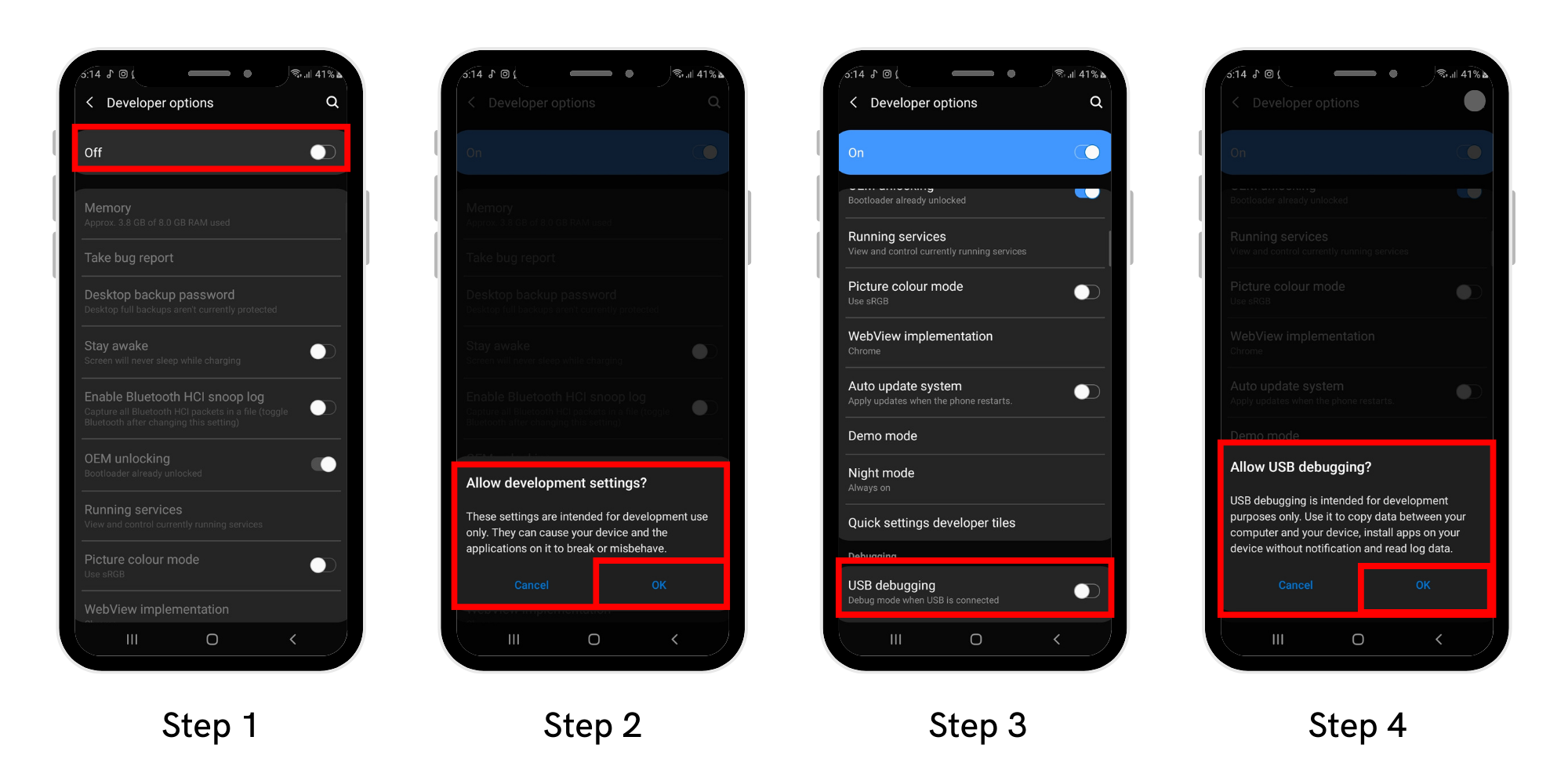
Enabling Developer Options and USB Debugging - Connect your phone with your computer.
- Open Command Prompt (or any other CLI) and enter the directory where you have installed ADB. In most cases, by default, it will be downloaded in C:\Program Files (x86)\Minimal ADB and Fastboot.
- After accessing the directory via the command prompt, write:
adb shell rm /data/system/gesture.key
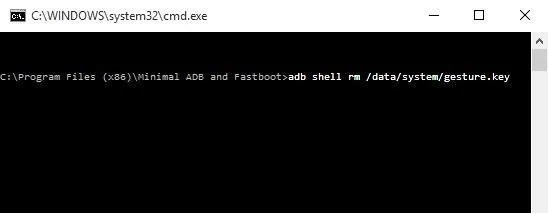
Using Command Prompt to access ADB and Bypassing Android lock screen - Restart your phone. After that, you should not see the lock screen anymore.
Keep in mind that if you mess up any step here, the entire process will fall apart, and you could even end up causing serious damage to your device. So, if you don’t know what you’re doing, it’s best to have this step done by an expert.
2. Crash the lock screen.
This method only works on Android 5.0.0 to 5.1.1, so if you have a device falling within those specifications, try the following:
- Select “Emergency Call” from the lock screen menu. Enter 10 asterisks into the phone’s dialer. Copy these asterisks and paste them next to themselves, essentially creating 20 asterisks at this point.
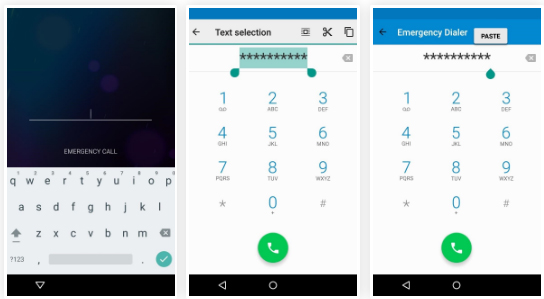
Step 1: Crashing the Android Lock Screen | Android Data Recovery - Until double-tapping or holding no longer highlights the characters, you should continue adding characters to the password area by pasting.
- Then, launch the camera app and pull down the notification shade. Open the settings menu, where you have to enter the password.
- Double-tap or hold to paste the characters, then repeat the process and keep adding more characters. This will ultimately crash the lock screen, and you can access your device.
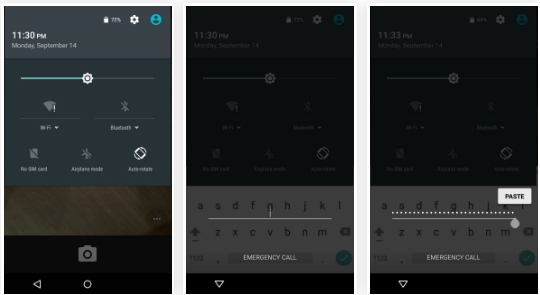
Step 2: Crashing Android Lock Screen | Android Data Recovery
Unfortunately, this method does not work for Android versions 6 and above
3. Reset your Android to factory settings (data loss may occur).
If none of the above solutions work, you will need to restore the device to its original settings. This will delete everything from your phone as well. After the reset, you can log in with the same Google account you used for backup and recover most of your data. See what you need to before resetting an Android phone.
You will need to find another way to perform the reset now that you are locked out. Using Google’s Find My Device service is the simplest option. If you have enabled factory data reset on your phone, you may use this website to do so. In the event that you cannot apply this procedure, a manual factory reset will be required. In order to do this:
- Turn off the phone.
- If you want to access Android’s bootloader menu after the screen has gone entirely black, press and hold the volume down and power keys simultaneously. Depending on the model of your phone, the appropriate button sequence may vary. Therefore, it is better to search online for your specific device model.
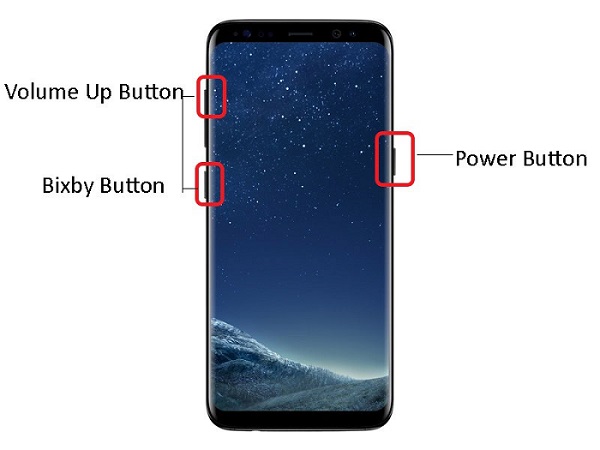
How to access Android bootloader? | Tenorshare - You can choose ‘Recovery Mode‘ by pressing the power button after highlighting it by pressing the volume down button twice.
- To conduct a factory reset, proceed with the instructions. You can navigate up and down using the volume buttons, and make your selection with the Power Button. You need to move over to the “Factory Data Reset” option, and select it using the Power Button.

Reset Factory Data in Android - Your device will restart and begin the setup process anew. Your backed-up data will be restored after you sign back into your Google account.
Smart Lock is a useful security feature that should be activated right after your phone is set up. Your Android device may be unlocked quickly and easily while connected to your home Wi-Fi network.
If FRP is enabled on a device (which it is by default if you have added a Google Account to your phone), then after the factory reset, you’ll be prompted to enter the username and password of the Google Account that was previously linked to the device. If you can’t provide this information, you won’t be able to complete the setup process, and the device will be unusable.
How can future lockouts be prevented?
While the suggested strategies will help you regain access to your Android device, they aren’t aimed at helping you remember your password for future use. To avoid the constant need for these remedies, it’s vital to adopt preventive measures that will help you remember your password, sparing you the repetitive inconvenience.
Consider the following enhanced strategies to ensure that your Android password remains both secure and memorable:
- Leverage a Password Manager: Consider using a digital password manager, a secure tool designed to store and manage your passwords. This not only aids in preserving the safety of your passwords but also eliminates the risk of forgetting them.
- Design a Robust yet Memorable Password: Avoid the temptation to choose a basic, easily guessable password. Instead, craft a password that is complex and unique, yet easy for you to recall. Such a password improves your device’s security and is less likely to be forgotten.
- Enable Multiple Access Options: Make sure you have activated at least one Smart Lock feature on your device, and stay logged into your Google account (and Samsung account if you are a user). This additional layer of security offers alternative access methods, should you forget your password.
- Maintain Regular Data Backups: Prioritize regular backups of your Android data. This crucial step protects your data if a hard reset becomes necessary, reducing the risk of any potential data loss.
By incorporating these tactics, you can not only ensure the security of your Android device, but also significantly reduce the occurrence of password-related issues, resulting in a smoother user experience.
In conclusion.
There are a number of methods available for getting through Android device lock screens. Both the requirements and the privileges of these options vary. Unfortunately, the majority of screen-unlocking techniques also cause data corruption.
Your phone might be wiped clean, causing you to lose all your data in the process. Therefore, it is better to use apps like Find My Device or SmartThings Find, which can help you regain access to your phone in case it is locked.
 Reviewed by
Reviewed by 




